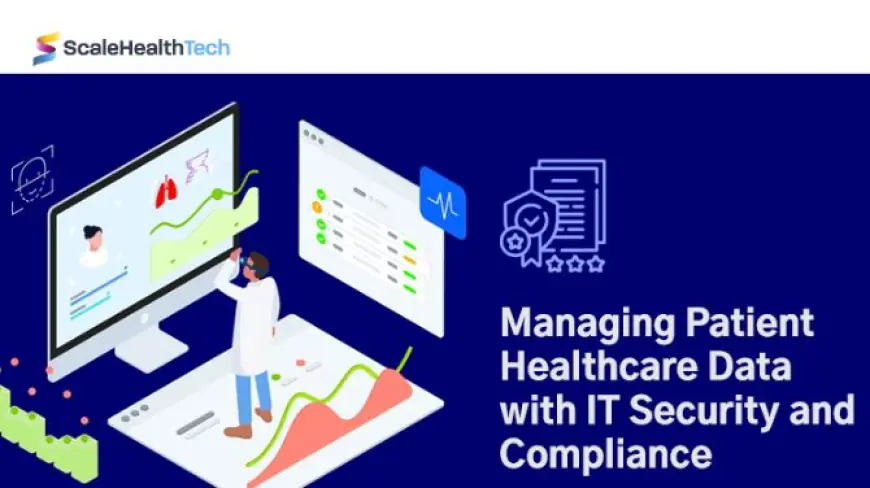How Healthcare Consultants Improve Healthcare Systems' Interoperability
Healthcare consultants are key players in making this a reality.

In today’s fast-evolving healthcare landscape, ensuring seamless communication between different healthcare systems is crucial. Healthcare interoperability is the ability of various healthcare systems, devices, and applications to work together smoothly, allowing healthcare providers to share patient information without barriers. However, achieving interoperability is often challenging due to the complexity of healthcare systems, various software platforms, and differing data formats. This is where Healthcare Consultants play a pivotal role in improving interoperability.
What is Healthcare Interoperability?
Healthcare interoperability refers to the ability of health IT systems, devices, and software applications to communicate, exchange, and use data effectively. It ensures that patient information can be accessed and shared across different healthcare providers, making healthcare delivery more efficient, coordinated, and patient-centric. Interoperability is vital for improving the quality of care, reducing errors, and enhancing patient outcomes.
The Role of Healthcare Consultants
Healthcare consultants are experts who assist healthcare organizations in improving their processes, technology, and operational strategies. In the context of interoperability, consultants bring expertise in technology, policy, and healthcare practices to help healthcare providers optimize their systems. Here’s how healthcare consultants improve interoperability:
1. Assessing Existing Systems
Before implementing any changes, healthcare consultants conduct a thorough assessment of existing IT infrastructure. They identify the systems in use, how well they integrate, and whether data can flow freely between them. This helps pinpoint barriers to interoperability, such as outdated systems, siloed data, or incompatible software.
2. Recommending the Right Technology
One of the biggest hurdles to interoperability is choosing the right technology. Healthcare consultants evaluate the needs of the healthcare organization and recommend appropriate solutions, such as Electronic Health Records (EHR) systems, Health Information Exchanges (HIE), or cloud-based platforms. These tools help ensure that patient data can be easily shared between different systems, regardless of the platform.
3. Ensuring Compliance
Interoperability is not only a technical challenge but also a regulatory one. Healthcare organizations must comply with regulations such as the Health Insurance Portability and Accountability Act (HIPAA) and the 21st Century Cures Act, which promote the secure exchange of patient data. Consultants ensure that the recommended systems and processes adhere to these regulations, safeguarding patient privacy while promoting effective data sharing.
4. Standardizing Data Formats
A common obstacle to interoperability is the use of different data formats across healthcare systems. Healthcare consultants help standardize data formats by adopting common standards such as HL7, FHIR (Fast Healthcare Interoperability Resources), or CCD (Continuity of Care Document). These standards make it easier for disparate systems to interpret and exchange data.
5. Facilitating Data Integration
Effective data integration is the backbone of interoperability. Consultants guide healthcare organizations through the integration of various systems, ensuring that data flows smoothly between them. They assist in creating middleware or interfaces that allow data from multiple sources to be unified into a single, coherent system, making it easier for healthcare providers to access complete patient information.
6. Training and Change Management
One of the keys to successful interoperability is user adoption. Healthcare consultants help healthcare organizations train staff on new systems, processes, and technologies. They ensure that all team members, from administrative staff to medical professionals, understand how to use the systems efficiently, minimizing resistance to change and promoting smoother transitions.
7. Ongoing Support and Optimization
Interoperability is not a one-time fix. Healthcare consultants provide ongoing support to ensure systems continue to communicate effectively over time. They monitor performance, troubleshoot issues, and optimize the systems as new technology or regulations emerge.
The Benefits of Improved Interoperability
By enhancing interoperability, healthcare consultants help organizations:
- Enhance Patient Care: Improved data sharing ensures that healthcare providers have access to comprehensive and up-to-date patient information, leading to better decision-making and improved outcomes.
- Reduce Costs: Interoperability reduces redundant tests and procedures, leading to cost savings.
- Improve Efficiency: Streamlined data exchange reduces administrative overhead and delays, allowing healthcare professionals to focus more on patient care.
- Ensure Regulatory Compliance: Consultants help ensure that organizations meet regulatory standards related to data sharing and patient privacy.
Conclusion
Healthcare interoperability is essential for creating a more efficient, coordinated, and patient-centered healthcare system. Healthcare consultants are key players in making this a reality. Through their expertise in technology, processes, and regulations, they help healthcare organizations bridge gaps between systems, standardize data, and ensure compliance. The result is a healthcare environment where seamless data exchange translates into better care, reduced costs, and improved patient outcomes.












